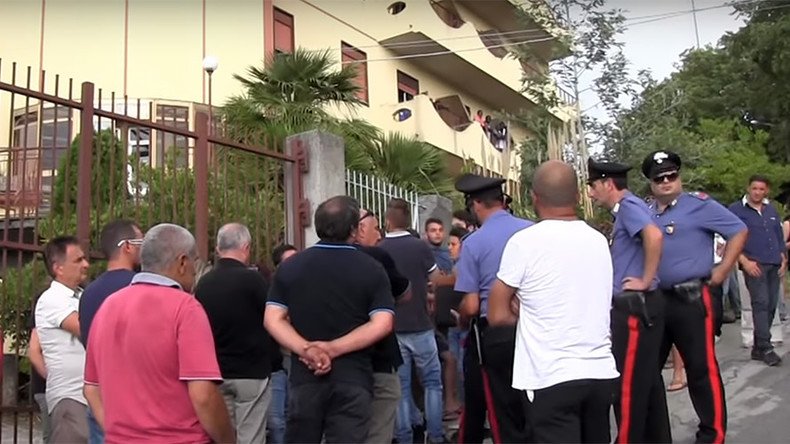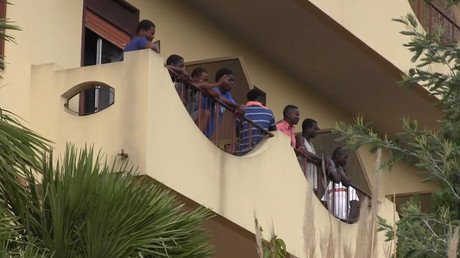‘People angry at money spent on migrants’ relocation’ – Italian mayor to RT

The mayor of a small Italian town who protested migrants’ arrival by cutting off the electricity to the hotel building they are living in has explained to RT the motives behind the move.
Castell’Umberto mayor Vincenzo Lionetto Civa told RT’s Ilya Petrenko that he and hundreds of other people launched their protest because “the prefecture didn’t tell us in advance that the migrants were coming.”
The protesters argued that the number of newcomers was too high for the town, where just 3,200 people live, and demanded that the government to follow its own plan, which states that asylum seekers should be spread evenly across the country with a ratio of 2.5 migrants for every 1,000 Italian residents.
Castell’Umberto already has “many problems,” which include unemployment, issues with infrastructure and healthcare, among others, the mayor said.
“That’s why some people around here are angry because the government chose to invest money into the relocation of migrants instead of providing the town with additional funds,” Civa said.
However, over a week since the protests that attracted media attention broke out, the migrants were still at the hotel.
RT’s Petrenko met a man claiming to be from a cooperative that was assigned by the Italian authorities to relocate the migrants, at the entrance to the building.
He said that people from the African nations of “Nigeria, Niger, Guinea and Burkina Faso” were currently staying at the hotel.
The man rejected Civa’s claim that only a few people at the facility were actual refugees, with the majority being economic migrants.
“No, that’s not true. The migrants are well integrated. The mayor has never even contacted me. He’s lying,” the cooperative representative said.
Petrenko was invited to enter the hotel and inspect the conditions created for the migrants, but the cooperative asked the crew to leave the camera outside.
“I can tell you that the migrants and refugees have everything to live a normal life there,” the correspondent said.
Reaction from other locals has been more welcoming in Castell’Umberto, as RT’s crew filmed an Italian couple with a tray of sweets for the asylum seekers entering the hotel.
RT also visited the nearby town of Milazzo, where the government is planning to open a migrant center for 60 migrants in an abandoned school building, but it is already facing opposition from local residents.
“Putting migrants here, into a building like this, is racism,” a lawyer representing the community said. “The risk is that the shelter could turn into a ghetto, a kind of concentration camp, because the migrants will have nothing to do here."
READ MORE: 'We'll sink them': Angry activists threaten migrant traffickers’ ships arriving in Sicily
“But the problem isn’t just this. It’s bigger. A lack of ability and opportunities to integrate,” he added.
Over 90,000 migrants from North Africa have crossed the Mediterranean from Libya to Italy this year alone.
With Italy accepting 85 per cent of all migrants who journey by sea to Europe, Rome has accused the EU of betrayal and an unwillingness to share the burden.
Interior ministers from 14 nations of EU and African nations met in Tunisia on Monday and agreed to boost cooperation in tackling the migrant crisis.
READ MORE: Italy in ‘tug of war’ with EU over migrants, may give them visas
They promised to address the reasons making people flee their countries, put more efforts into curbing human trafficking and provide more information to people on the dangers of illegal immigration.
“There is no magic solution. No nation can alone deal with the migratory flux and no nation is sheltered from it,” Marco Minniti, the Italian interior minister, said after the talks, again urging a common strategy to deal with the situation.














